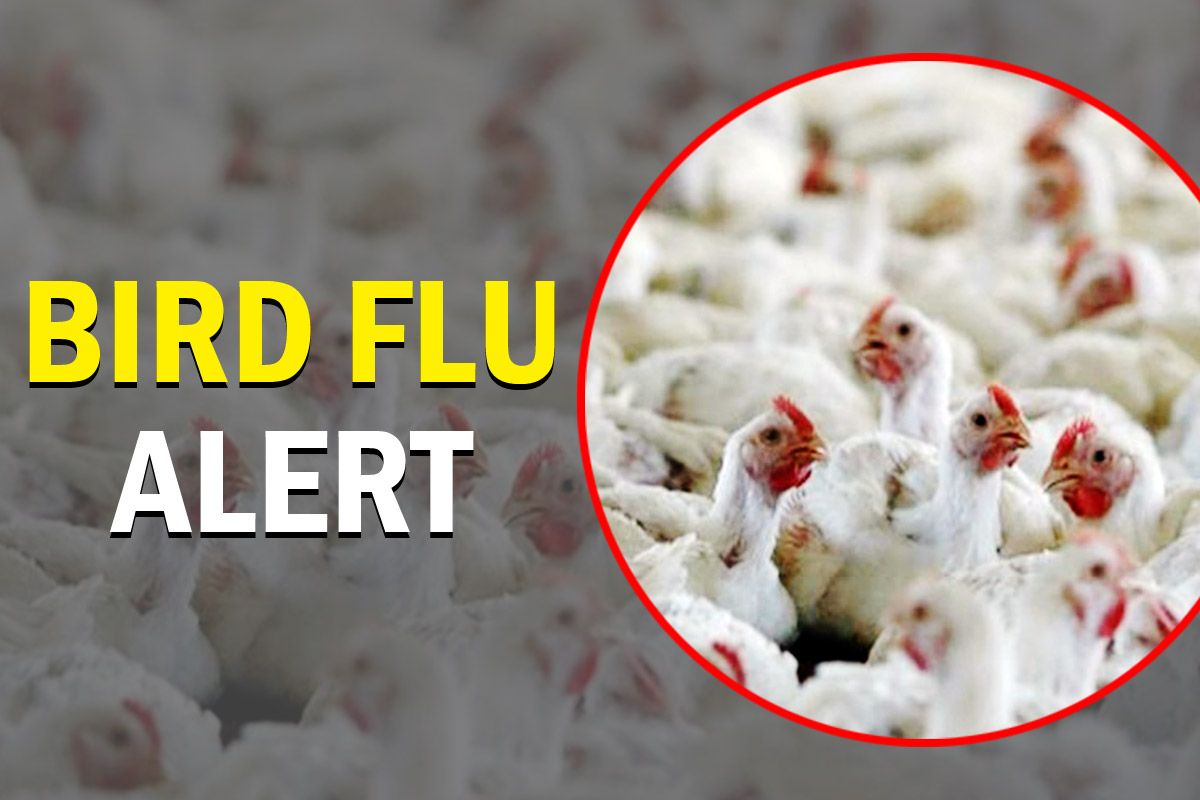H5N8 : Outbreak of Bird flu in India.
Introduction:
While
the first bird flu cases were reported majorly in 2006 and India declared
itself free of bird flu in September 2019, the country today is again amidst
bird flu outbreak where several states have reported positive cases along with
thousands of birds dying from it.
The
outbreak of avian flu, or bird flu, reported since the beginning of January,
has affected poultry sales, particularly in North India where the daily
business has been hit by as much 70 per cent in the last several days. The
price of poultry has halved while that of eggs are down by up to 20 per cent.
So far, bird flu has been reported from 10 States. Barring two States Kerala
and Haryana the infection is mostly seen in wild birds or crows.
In
Detail
Bird
Flu is a word which is not new to Indians anymore, thanks to frequent outbreaks
ever since the infection surfaced over a decade ago. While the first bird flu
cases were reported majorly in 2006 and India declared itself free of bird flu
in September 2019, the country today is again amidst bird flu outbreak where
several states have reported positive cases along with thousands of birds dying
from it.
Now
this becomes a cause of concern as ten states and union territories now have to
battle bird flu alongside the novel Coronavirus. The flu, also known as avian
influenza has the potential to infect humans as well in some cases.
H5N1
& H5N8 Virus
In
birds, the flu is caused by Influenza type A virus called H5N1 and highly
contagious among the species. First discovered in 1996 in geese in China, the
virus has infected many birds and has been carried to many countries via
migratory birds. The virus is shed by their droppings and infect birds (majorly
poultry) where they go. Among 50 countries where the virus has been detected,
the virus had been declared endemic in China, India, Egypt, Indonesia, Vietnam,
and Bangladesh. In 1997, Hong Kong saw the first case where the infection was
transmitted to humans.
Those
who are in close contact with livestock or dead birds contracted the infection.
According to data provided by the World Health Organisation (WHO), 862 cases of
avian influenza have been confirmed in humans so far where 455 people also died
from it. This is cumulative data of avian influenza in humans since 2003 to
2020.
Dangers
of the H5N1
It
is a contagious and virulent disease caused by what is known as Type A
influenza viruses. These viruses normally affect birds. Even though all types
of birds are said to be susceptible to infection, domestic poultry, ducks and
turkey are more vulnerable as the density of birds in commercial farms is
extremely high and helps the infection reach epidemic proportions rather
rapidly.
These
viruses are identified based on characteristics of two proteins they harbour,
hemagluttinin (HA) and neuraminidase (NA). While HA has the ability to latch on
to the lung cells it comes in contact with, NA helps virions the entire virus particle, that is, to escape
the cell’s confines to spread to other host cells. There are 18 distinct
sub-types of HA and 11 NA, making it possible to have 198 possible
combinations. The currently circulating strain of bird flu is said to be H5N8,
which is quite lethal for birds.
Current
Status of Bird Flu in India
Recently,
the Kanpur zoo in Uttar Pradesh was shut down, and it was declared all birds
there will be killed after the bird flu was confirmed in wild chickens found
dead in the zoo.
While
17 more ducks were found dead at Sanjay Lake in New Delhi on Sunday,
authorities declared it an "alert zone". This came a day after the
Delhi Development Authority closed the famous water-body-cum-park following the
death of 10 ducks on the premises. The samples from the dead ducks have been
sent for testing to ascertain whether bird flu was the cause of death.
Authorities
also shut the popular Hauz Khas Park in south Delhi, which is a huge water body
and attracts a large number of crowd every day, has also been shut.
The
flu cases have so far been confirmed in 13 districts of Madhya Pradesh, while
around 1,100 crows and other wild birds have been found dead across 27
districts since the virus was first detected in the state last month.
Carcasses
of 215 migratory birds were found in Pong Dam Wildlife Sanctuary in Himachal
Pradesh's Kangra district on Sunday, taking the total number of such birds
suspected to have died of avian influenza to 4,235, officials said. Each day,
hundreds of migratory birds were found dead in the lake area since December 29.
Conclusion
Though
the bird flu virus can potentially infect humans through mutation, the chances
are remote with the current H5N8 strain. Meanwhile, people have been scared to
consume any poultry products.
Connecting
the Article
Question
for Prelims
Consider
the following statements regarding H5N1 virus
1.
It is known as Type A influenza viruses.
2.
These are identified based upon the protein characterstics.
Which
of the statements given above is/are correct ?
(a)
1 only
(b)
2 only
(c)
Both 1 and 2
(d)
Neither 1 nor 2
Question
for Mains
India
is facing major epidemics that have caused damage to both human and social
economy. Discuss the major steps that India should take to fight against such
health threats in a rigorous manner.


Comments
Post a Comment